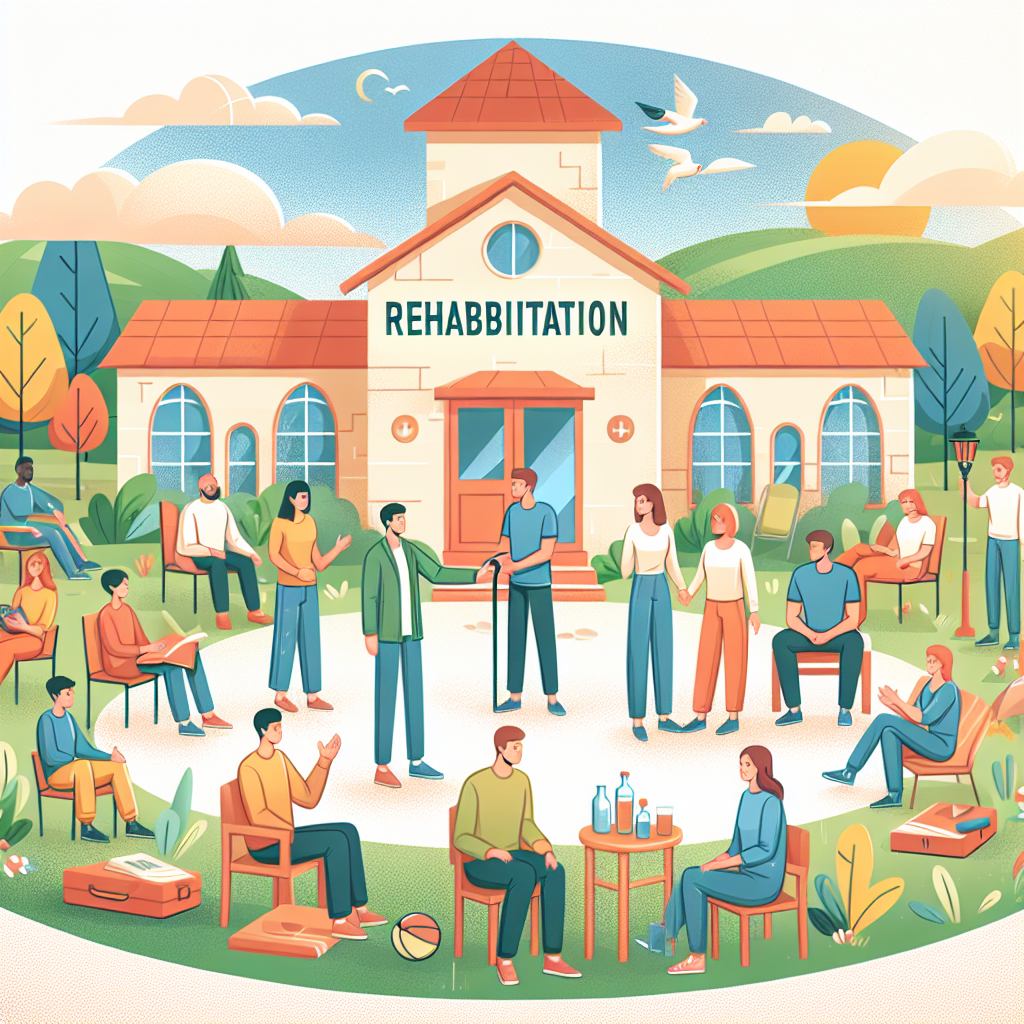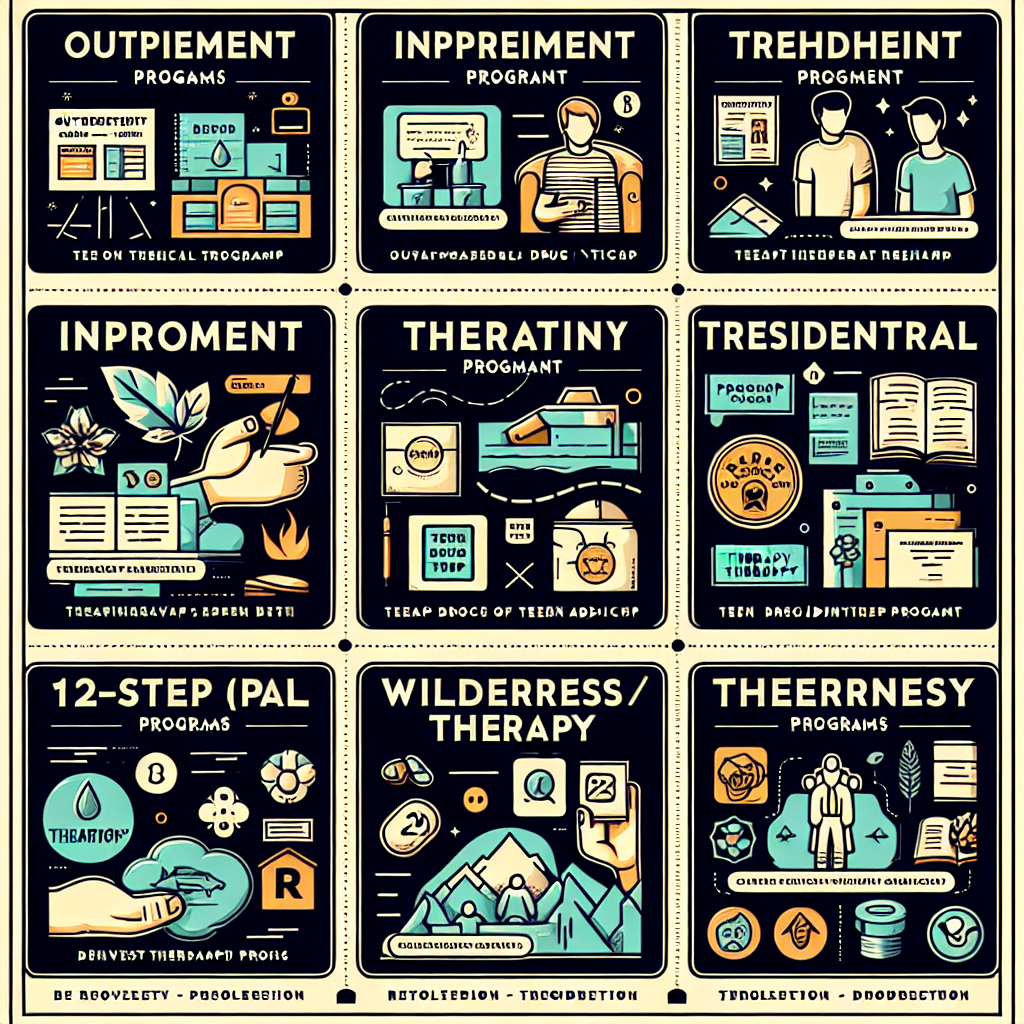-
Table of Contents

“Rehab: Paving the Path to a Brighter Future for Teens Battling Substance Abuse.”
Introduction
Substance abuse among teenagers is a growing concern that poses significant risks to their physical, emotional, and social well-being. Adolescence is a critical developmental period, and the misuse of drugs or alcohol can severely disrupt this process, leading to long-term consequences. Rehabilitation, or rehab, is essential for teens struggling with substance abuse as it provides a structured and supportive environment where they can receive comprehensive care tailored to their unique needs. Rehab programs offer medical detoxification, therapeutic interventions, and educational support, all of which are crucial for addressing the underlying issues contributing to substance abuse. By fostering a holistic approach to recovery, rehab helps teens develop healthy coping mechanisms, rebuild relationships, and regain control over their lives, ultimately paving the way for a brighter and more stable future.
The Importance of Early Intervention: Why Rehab Is Essential for Teens Struggling with Substance Abuse
Early intervention is crucial for teens struggling with substance abuse, as it can significantly alter the trajectory of their lives. Adolescence is a formative period marked by rapid physical, emotional, and cognitive development. During this time, the brain is still maturing, making it particularly vulnerable to the harmful effects of drugs and alcohol. Substance abuse can disrupt this critical developmental phase, leading to long-term cognitive deficits, emotional instability, and a higher likelihood of developing chronic addiction. Therefore, timely rehabilitation is not just beneficial but essential for teens facing these challenges.
Rehabilitation programs tailored for teenagers offer a structured environment where they can receive the specialized care they need. These programs are designed to address the unique psychological and social factors that contribute to substance abuse in adolescents. For instance, many teens turn to drugs and alcohol as a coping mechanism for underlying issues such as anxiety, depression, or trauma. Rehab provides a safe space for them to explore these underlying issues with the guidance of trained professionals. Through individual and group therapy sessions, teens can develop healthier coping strategies and build a support network that encourages sobriety.
Moreover, early intervention through rehab can prevent the escalation of substance abuse into more severe addiction. The earlier a teen receives help, the better their chances of recovery. Rehabilitation programs often incorporate educational components that teach teens about the dangers of substance abuse and the importance of making healthy choices. This knowledge empowers them to make informed decisions and resist peer pressure, which is a significant factor in teenage substance abuse. By equipping teens with the tools and knowledge they need to stay sober, rehab programs lay the foundation for a healthier, more fulfilling future.
In addition to addressing the immediate issue of substance abuse, rehab also focuses on the holistic development of the teen. This includes academic support, life skills training, and recreational activities that promote overall well-being. Many teens struggling with substance abuse experience academic difficulties, which can further exacerbate their problems. Rehabilitation programs often collaborate with educational institutions to ensure that teens do not fall behind in their studies. This academic support helps them regain confidence and sets them on a path to achieving their educational and career goals.
Furthermore, life skills training is an integral part of the rehabilitation process. Teens learn essential skills such as time management, financial literacy, and effective communication. These skills are crucial for their transition into adulthood and help them navigate the complexities of life without resorting to substance abuse. Recreational activities, on the other hand, provide a healthy outlet for stress and help teens discover new interests and passions. Engaging in sports, arts, or other hobbies can significantly improve their mental and emotional well-being, making it easier for them to maintain sobriety.
The importance of early intervention cannot be overstated. By addressing substance abuse issues during adolescence, we can prevent a lifetime of struggles and help teens realize their full potential. Rehabilitation offers a comprehensive approach that not only tackles the problem of substance abuse but also promotes overall growth and development. It provides teens with the tools they need to overcome their challenges and build a brighter future. Therefore, investing in rehab for teens is an investment in their future, one that yields immeasurable benefits for them, their families, and society as a whole.
Long-Term Benefits: How Rehab Helps Teens Overcome Substance Abuse and Build a Brighter Future
Rehabilitation is a crucial step for teens grappling with substance abuse, offering not just immediate relief but also long-term benefits that pave the way for a brighter future. The journey through rehab is often challenging, but the rewards are profound and enduring. One of the most significant long-term benefits of rehab is the development of coping mechanisms. Teens learn to manage stress, peer pressure, and emotional turmoil without resorting to drugs or alcohol. These skills are invaluable, as they equip young individuals to face life’s inevitable challenges with resilience and confidence.
Moreover, rehab provides a structured environment where teens can focus on their recovery without the distractions and temptations of their usual surroundings. This safe space allows them to break free from the cycle of addiction and begin the healing process. In this supportive setting, teens receive personalized care tailored to their specific needs, which is essential for effective recovery. The individualized approach ensures that each teen’s unique circumstances are addressed, fostering a deeper understanding of their addiction and the underlying issues that contribute to it.
Another critical aspect of rehab is the emphasis on education. Teens are educated about the dangers of substance abuse and the impact it has on their physical and mental health. This knowledge empowers them to make informed decisions and recognize the importance of maintaining a healthy lifestyle. Additionally, rehab programs often include academic support, helping teens keep up with their studies and ensuring that their education does not suffer during their recovery. This focus on academics reinforces the idea that a successful future is within their reach, motivating them to stay committed to their recovery journey.
Rehab also fosters the development of healthy relationships. Teens learn to build and maintain positive connections with peers, family members, and mentors. These relationships provide a strong support network that is crucial for long-term recovery. The sense of community and belonging that develops in rehab can be a powerful motivator, encouraging teens to stay on the path to sobriety. Furthermore, family therapy sessions help repair and strengthen familial bonds, creating a more supportive home environment that is conducive to sustained recovery.
In addition to emotional and psychological support, rehab offers practical life skills training. Teens learn essential skills such as time management, goal setting, and financial planning. These skills are vital for their transition into adulthood and help them build a stable and independent life. By equipping teens with these tools, rehab programs ensure that they are prepared to face the future with confidence and competence.
The long-term benefits of rehab extend beyond the individual to society as a whole. When teens overcome substance abuse, they are less likely to engage in criminal activities or require medical interventions related to their addiction. This reduction in negative behaviors and health issues translates to lower societal costs and a safer, healthier community. Moreover, teens who successfully complete rehab are more likely to become productive members of society, contributing positively to the economy and their communities.
In conclusion, rehab is essential for teens struggling with substance abuse, offering a multitude of long-term benefits that help them overcome addiction and build a brighter future. Through the development of coping mechanisms, education, healthy relationships, and practical life skills, rehab provides teens with the tools they need to lead fulfilling and successful lives. The positive impact of rehab extends beyond the individual, benefiting families and society as a whole. By investing in rehab for teens, we are investing in a healthier, more prosperous future for everyone.
Q&A
1. **Question:** Why is early intervention through rehab crucial for teens struggling with substance abuse?
**Answer:** Early intervention through rehab is crucial for teens struggling with substance abuse because it can prevent the development of chronic addiction, reduce the risk of long-term health issues, and improve the chances of successful recovery by addressing the problem before it becomes deeply ingrained.
2. **Question:** How does rehab provide a supportive environment for teens dealing with substance abuse?
**Answer:** Rehab provides a supportive environment for teens dealing with substance abuse by offering structured programs, professional counseling, peer support, and a safe space free from triggers and negative influences, which collectively help teens focus on recovery and develop healthy coping mechanisms.
Conclusion
Rehab is essential for teens struggling with substance abuse because it provides a structured and supportive environment that addresses the unique psychological, emotional, and social challenges faced by adolescents. It offers specialized treatment programs that focus on the root causes of addiction, equips teens with coping mechanisms and life skills, and fosters a sense of accountability and self-awareness. Additionally, rehab facilitates family involvement and education, which is crucial for long-term recovery and relapse prevention. By intervening early, rehab can significantly improve the chances of a healthy, productive future for teens, reducing the risk of chronic addiction and its associated consequences.



